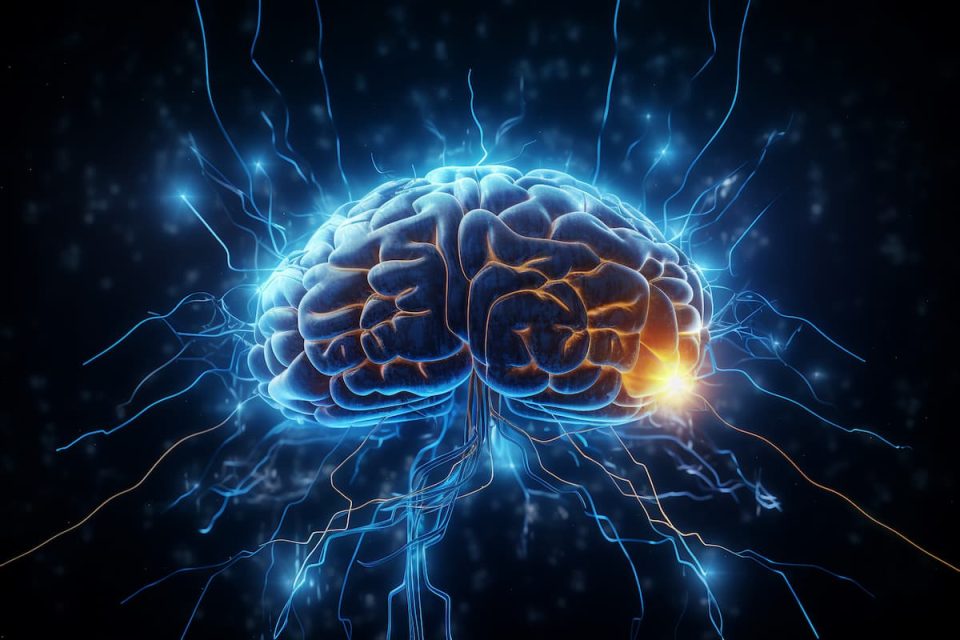Have you ever felt like your anxiety is more than just a fleeting worry, that it might be an intrinsic part of who you are, perhaps even a slice of a broader neurodivergent identity? You’re not alone in this thought-provoking journey. As we unravel the intricate relationship between anxiety and neurodivergence, we invite you to dive deep into a discussion filled with personal stories, scientific perspectives, and the evolving understanding of what it means to experience the world differently. This article isn’t just about definitions; it’s an invitation to see yourself in a new light and to join a conversation that validates and explores the unique ways your mind works. So, let’s embark on this exploration together, questioning, learning, and growing with each paragraph.
How Does Anxiety Feel?
When we talk about anxiety, it’s crucial to recognize that it’s more than just the occasional worry or stress. Anxiety can be a profound and sometimes debilitating experience. But what exactly is it? Let’s explore some definitions to help you understand and relate to anxiety in a way that resonates with your own experiences.
APA Definition of Anxiety
Firstly, according to the American Psychological Association, anxiety is “an emotion characterized by feelings of tension, worried thoughts, and physical changes like increased blood pressure.” This definition highlights the emotional and physical aspects of anxiety, emphasizing the broad impact it can have on your daily life. Have you ever felt this tension, these worried thoughts taking over your day? If so, you’re not alone in this feeling.
DSM-5 Definition of Anxiety
Another perspective comes from the Diagnostic and Statistical Manual of Mental Disorders (DSM-5), which defines anxiety disorders as involving “repeated episodes of sudden feelings of intense anxiety and fear or terror that reach a peak within minutes.” This definition focuses more on the acute, intense episodes that can occur with anxiety disorders, known as panic attacks.
Your Personal Definition of Anxiety
These definitions show that anxiety can manifest in different ways. Maybe you relate more to the persistent worry described by the APA or the intense, sudden peaks of fear characterized by the DSM-5. Or perhaps your experience falls somewhere in between or even outside these definitions. That’s okay. Anxiety is a deeply personal experience, and it doesn’t look the same for everyone.
Now, think about your own experiences with anxiety. Do they align with these definitions, or do they differ? Understanding and acknowledging your unique experience with anxiety is a crucial step in addressing and managing it. As we continue to explore anxiety and its place in the neurodivergent spectrum, keep in mind that your feelings and experiences are valid, no matter how they manifest.

What Does ‘Neurodivergent’ Mean?
As we continue our journey, let’s dive into what it means to be neurodivergent. Understanding the roots and evolution of this term will help us appreciate its significance today.
History of the term ‘Neurodivergent’
The term “neurodivergent” was coined by the autism community. Specifically, it was first used by Judy Singer, a sociologist who is herself on the autism spectrum, in the late 1990s. She sought a term that could encompass the variety of neurological differences that exist. Originally, it was closely associated with autism but has since expanded to include a range of neurological variations.
Initially, “neurodivergent” was a way to describe individuals whose brain functions differ from what is considered typical or neurotypical. It was a term born out of the neurodiversity movement, which advocates for the acceptance of all neurological conditions as natural human variations rather than defects or disorders.
Conditions Considered Neurodivergent Today
Today, neurodivergence includes a wide array of conditions. Some common neurodivergent conditions include Autism Spectrum Disorder, Attention Deficit Hyperactivity Disorder (ADHD), Dyslexia, Tourette Syndrome, and others. Prominent figures thought or confirmed to have had these conditions include Albert Einstein and Leonardo da Vinci (often speculated to have had traits of ADHD or autism), Temple Grandin (an outspoken advocate for autism), and Steven Spielberg (who has dyslexia).
One critical aspect to understand about neurodivergence is that it’s incredibly individualistic. No two neurodivergent people are identical; each person’s brain and experiences are unique. This diversity within neurodivergence means that while there might be shared characteristics, each person’s needs, strengths, and challenges are personal.
Characteristic of Neurodivergent Individuals
So, what are some characteristics and experiences of neurodivergent individuals? While this varies widely, some commonalities might include differences in social communication and interaction, learning, attention, and sensory processing. For instance, someone with autism might have a deep focus on specific interests and prefer structured routines, while an individual with ADHD might show remarkable creativity and an ability to think outside the box but struggle with attention and organization.
It’s also important to note that neurodivergence is not solely about challenges or deficits; it’s equally about recognizing and celebrating the strengths and contributions of neurodivergent individuals. Many neurodivergent people have unique perspectives, skills, and talents that enrich our world.
As you reflect on the concept of neurodivergence, consider the diversity and richness it brings to human experience. Remember, being neurodivergent means being part of a wide spectrum of human brains and minds, each with its own way of interacting with the world. In our next sections, we’ll delve deeper into how this spectrum intersects with anxiety and what that means for individuals navigating these experiences.
Arguments for Anxiety as a Neurodivergent Condition
As we venture further into the relationship between anxiety and neurodivergence, let’s explore why some individuals and experts consider anxiety a part of the neurodivergent spectrum. This perspective is often deeply personal and rooted in the intensity and nature of the individual’s experience with anxiety.
The Intensity of Experience
One of the key arguments for considering anxiety as neurodivergent is based on the intensity and pervasiveness of the emotional experience. For many, anxiety isn’t just a passing worry; it’s a constant, overwhelming part of life that significantly impacts their daily functioning. This intense emotional experience can make those with severe anxiety feel different from those around them, similar to the experiences of people with other neurodivergent conditions.
Heightened Sensitivity to Stimuli
Furthermore, some individuals with anxiety find that their way of processing emotions, thoughts, and sensory inputs aligns more closely with neurodivergent experiences than neurotypical ones. They might notice heightened sensitivity to stimuli, deep empathy, or unique thought patterns, which are often characteristics associated with neurodivergence. For these individuals, identifying as neurodivergent can provide a sense of belonging and understanding in a world that often stigmatizes or misunderstands intense emotional experiences.
It’s important to note that the inclusion of anxiety within the neurodivergent identity is usually a personal opinion or self-identification rather than a widely accepted clinical perspective. The medical and psychological communities typically categorize anxiety disorders separately from neurodevelopmental conditions. However, the personal narratives and self-advocacy of individuals play a crucial role in shaping the understanding and acceptance of diverse mental experiences, including anxiety.
Additionally, some advocates argue that recognizing anxiety as part of neurodivergence can lead to more tailored and empathetic approaches to support and treatment. Traditional treatments might not always take into account the unique ways neurodivergent individuals experience the world, including their anxiety. By understanding anxiety through a neurodivergent lens, there may be a greater emphasis on holistic, individualized support that respects the person’s neurotype and personal experiences.
As you consider these perspectives, reflect on your own experiences or those of people you know. Does the idea of anxiety as a neurodivergent condition resonate with you or add complexity to the way you view mental health and neurodiversity? The conversation around this topic is ongoing, and every voice, including yours, contributes to a deeper, more nuanced understanding of what it means to live with anxiety and how it intersects with neurodivergence.
Arguments Against Anxiety as a Neurodivergent Condition
While some individuals feel that their anxiety is an integral part of their neurodivergent identity, there are also compelling arguments against categorizing anxiety as a neurodivergent condition. Understanding these perspectives is crucial for a balanced view. Let’s examine the counterarguments and also define what “neurotypical” means in this context.
Firstly, “neurotypical” is a term often used to describe individuals whose brain functions align with what’s considered the societal standard or norm. These individuals typically do not have the neurological differences associated with neurodivergent conditions such as Autism, ADHD, Dyslexia, etc. It’s the neurotypical experiences and reactions that often set the baseline from which neurodivergent experiences diverge.
Prevalence of Anxiety in Neurotypical Individuals
One argument against considering anxiety as neurodivergent is the prevalence of anxiety in the general population. Anxiety, to some degree, is a universal human experience. Most people, neurotypical or otherwise, will experience anxiety at various points in their lives. For example, feeling anxious before a major life event, during times of stress, or when facing danger is a common, often adaptive response. Proponents of this view argue that because anxiety is a widespread experience, it doesn’t necessarily indicate a neurological divergence.
Moreover, the intensity of anxiety can vary widely among individuals, regardless of whether they are neurotypical or neurodivergent. While it’s true that some people may experience anxiety more intensely or in different ways, this alone does not necessarily place anxiety within the neurodivergent spectrum. Neurotypical individuals might also experience intense anxiety or manage to mask or hide their symptoms effectively, a skill that some neurodivergent individuals might struggle with due to their other neurological characteristics.
Another point often brought up is the distinction between trait anxiety and clinical anxiety disorders. While many people experience transient or situational anxiety, anxiety disorders are characterized by persistent, excessive worry that interferes with daily life. Some argue that conflating all anxiety with neurodivergence might diminish the focus on anxiety disorders as specific, treatable conditions.
Blurring the Lines of Neurodivergence
Furthermore, critics of including anxiety within neurodivergence suggest that doing so might blur the lines of the definition of neurodivergence too much, making it less useful as a category. Neurodivergent conditions are generally understood to be innate or developmental differences in the neurocognitive functioning. Anxiety, particularly anxiety disorders, can be influenced by a multitude of factors, including genetics, environment, and personal experiences, making it a more complex and less defined category.
As you reflect on these arguments, consider how they resonate with your understanding of anxiety and neurodivergence. The conversation around this topic is nuanced and evolving. While it’s essential to listen to all perspectives, ultimately, the most important thing is finding a framework and language that best supports and validates individual experiences, including your own.
Impact of Labeling on Treatment and Perception
As we delve into the impact of labeling, especially in the context of anxiety and neurodivergence, it’s important to recognize the double-edged nature of labels. They can be both empowering and limiting. Understanding this dynamic is crucial in navigating how we perceive and treat anxiety within the neurodivergent community and beyond.
Benefits of Labels
Labels, in a positive light, can offer a sense of identity and community. For many individuals, finding a label that resonates can lead to a better understanding of their experiences and behaviors, validation of their feelings, and connection with others who share similar challenges. In terms of treatment, a specific label can guide clinicians and therapists in choosing the most effective strategies and interventions tailored to the individual’s needs.
Downside of Labels
However, the act of labeling can also be limiting, and this is where caution is necessary. When someone is labeled, particularly with a mental health condition or neurodivergence, there is a risk that the individual, and those around them, may start to see the label as a fixed and defining aspect of their identity. This can lead to a self-fulfilling prophecy where the individual feels confined to the characteristics of the label, potentially hindering personal growth or exploration of their full potential.
Moreover, labels can sometimes lead to a sense of fatalism, where individuals believe they are powerless to change aspects of their lives due to the inherent nature of their labeled condition. This is particularly concerning when individuals come to accept a label as their entire identity, overlooking the vast array of their abilities, interests, and the fluidity of their personal journey. It’s crucial to understand that while labels can describe certain aspects of our experiences, they do not define us wholly.
The danger of labels extends to the realm of treatment as well. When treatment is too rigidly based on labels, it might ignore the individual’s unique context, preferences, and experiences. Every person’s journey with anxiety or any neurodivergent condition is unique, and a one-size-fits-all approach can be ineffective or even harmful. It’s important for treatment to be flexible, evolving, and responsive to the individual rather than strictly adhering to the generalizations of a label.
As you consider the role of labels in your life or the lives of those around you, remember that they are tools. They can be incredibly useful, but they are not the entirety of anyone’s identity or potential. Embrace the parts of your identity that feel right to you, seek out treatments and support that resonate with your unique experience, and always remember that you are more than any label could ever encompass. Your journey is yours to shape, and while labels can guide you, they don’t have to confine you.
Staying Open Minded and Curious
As we conclude our exploration into the relationship between anxiety and neurodivergence, it’s clear that this is a complex and nuanced topic. We’ve delved into definitions, personal experiences, and the varying perspectives on whether anxiety should be considered a part of the neurodivergent spectrum. The journey through these discussions reflects the broader conversation about mental health, identity, and the human experience.
Remember, the debate around anxiety and neurodivergence is ongoing, and there’s no one-size-fits-all answer. Your experiences, feelings, and perspectives are valid and important. Whether or not you identify with the arguments presented, the most crucial takeaway is your personal understanding and the meaning you derive from these discussions.
As you move forward, I encourage you to stay open-minded and curious. Think critically about the labels and definitions presented to you, and consider how they align with your own experiences. Question things bravely, seek out information, and engage in conversations. Your voice is a valuable addition to the ongoing dialogue about mental health and neurodiversity.
Above all, remember that your journey is uniquely yours. Whether you identify as neurodivergent, have experiences with anxiety, or are simply seeking to understand these concepts better, your path is valid and worthy of exploration. Stay open to learning, growing, and evolving, and know that your perspective contributes to a richer, more inclusive understanding of the human mind and heart.


